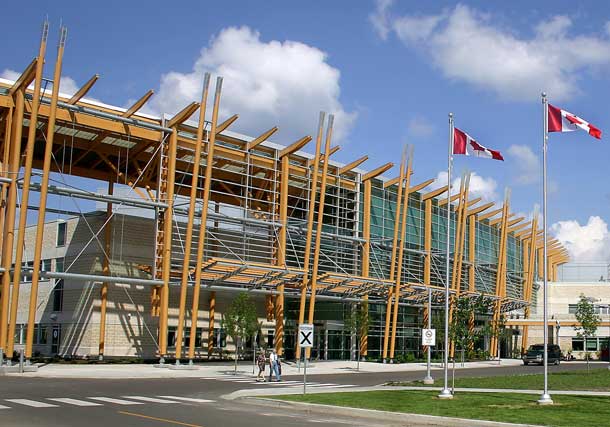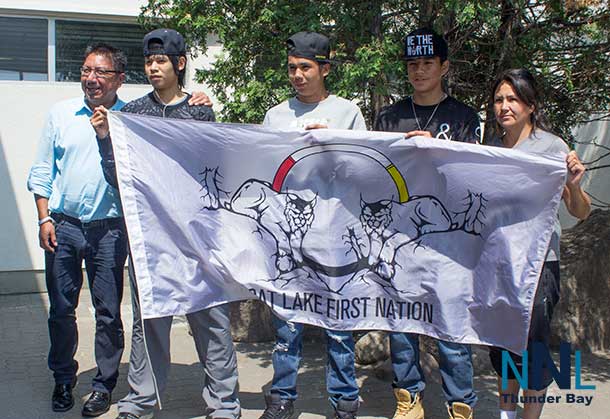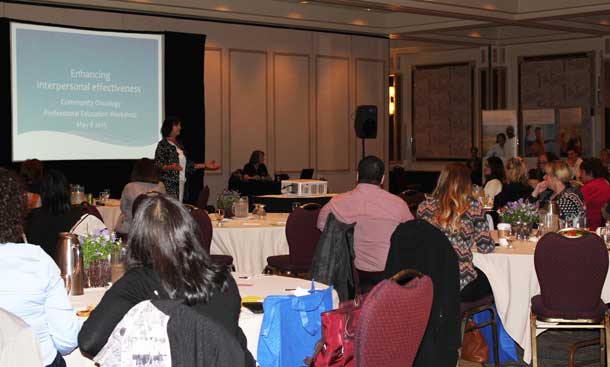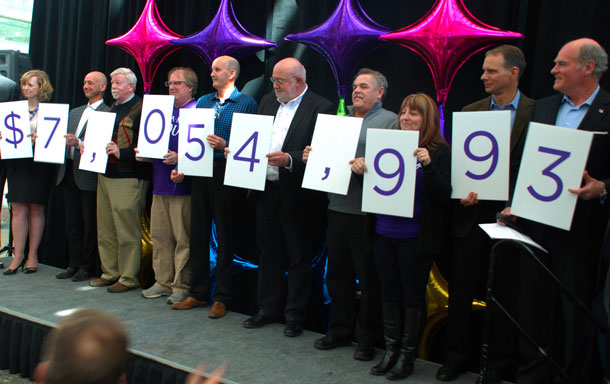 THUNDER BAY – Health News – Regional Cancer Care Northwest (RCC NW) and Thunder Bay Regional Health Sciences Centre (TBRHSC) are pleased to announce two new resources – an Aboriginal Patient Navigator and a Regional Aboriginal Cancer Lead – to help improve cancer care among First Nation, Inuit and Métis (FNIM) communities in Northwestern Ontario.
THUNDER BAY – Health News – Regional Cancer Care Northwest (RCC NW) and Thunder Bay Regional Health Sciences Centre (TBRHSC) are pleased to announce two new resources – an Aboriginal Patient Navigator and a Regional Aboriginal Cancer Lead – to help improve cancer care among First Nation, Inuit and Métis (FNIM) communities in Northwestern Ontario.
A joint initiative of Regional Cancer Care Northwest and Cancer Care Ontario (CCO), the Navigator and Lead roles will be filled by dedicated healthcare workers who will work from TBRHSC to offer individualized assistance to help residents overcome healthcare system barriers and facilitate timely access to care for FNIM patients and families.
“This is very welcome news. These new positions will really help to give Aboriginal cancer patients and their families the knowledge, support and cultural considerations they need, when they need them most, so they can make informed decisions about their course of care,” says Michael Gravelle, MPP Thunder Bay-Superior North.
Bill Mauro, MPP Thunder Bay-Atikokan, fully agrees. “Facing the challenge of a cancer diagnosis is never easy,” he says, “and obtaining timely and appropriate care is extremely important. These two new resources will help ensure that Aboriginal people navigating the healthcare system are able to access the information and assistance they need.”
Aboriginal Patient Navigators and Regional Aboriginal Cancer Leads are identified in CCO’s three-year Aboriginal Cancer Strategy II as vital components for helping First Nation, Inuit, and Métis people access and make their way through the cancer system and to enhance their knowledge, awareness, and experience throughout their cancer journey.
“These positions are a welcome complement to TBRHSC’s commitment to Aboriginal health,” says Dr. Mark Henderson, CCO Regional Vice President Cancer Services, and TBRHSC Executive Vice President Chronic Disease Prevention and Management. “As part of our efforts to fulfill our commitment to Aboriginal health – one of TBRHSC’s four strategic pillars – we are working to develop cultural sensitivity across our entire team and create a welcoming environment for First Nation patients and families. Our work has already begun with an active Aboriginal Advisory Committee and an Aboriginal Engagement Lead & Patient Advocate who is engaging with Aboriginal communities to determine ways to advance Aboriginal health in all areas of care.”
The Aboriginal Patient Navigator and Regional Aboriginal Cancer Lead positions will support a focused effort to help FNIM overcome their higher cancer incidence and mortality rates and better navigate the complexities of the cancer system by building more cultural competency into the system and bridging the divide between healthcare professionals and their Aboriginal patients.
“The health outcomes of Aboriginal people are disproportionately lower than those of non-Aboriginal Ontarians,” said Alethea Kewayosh, Director, Aboriginal Cancer Control Unit, Cancer Care Ontario. “The Aboriginal Patient Navigator and Regional Aboriginal Cancer Lead will help FNIM peoples better understand cancer and the need to adhere to their treatment plans, provide improved support to help them more effectively cope emotionally, psychologically and physically with their cancer and potentially improve treatment results.
Both the Aboriginal Patient Navigator and the Regional Aboriginal Cancer Lead will work through the Regional Cancer Centre at TBRHSC and the Northwest’s Aboriginal cancer care network to engage their FNIM patients and actively implement CCO’s Aboriginal Cancer Strategy II.
The Aboriginal Patient Navigator will facilitate and coordinate access to culturally appropriate cancer services, work to address the cultural and spiritual needs of patients and their families, and network with FNIM and non-Aboriginal partners.
The Regional Aboriginal Cancer Lead will focus on successful engagement and collaboration across varying primary care settings and advocate for and address the primary care needs of FNIM people in their regions.
The second Aboriginal Cancer Strategy is a renewal of CCO’s commitment to reduce the number of FNIM people diagnosed with cancer, and make sure those who do get cancer live longer and better lives, receiving better care every step of the way.
Interested individuals can check the TBRHSC website in the immediate future for details about the Aboriginal Patient Navigator and Regional Aboriginal Cancer Lead positions.







